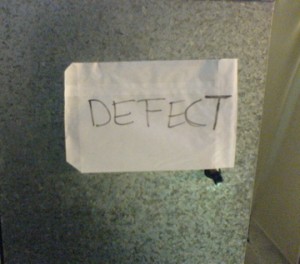Vehicle recalls and defects are more than just an inconvenience. They can lead to accidents, serious injuries, and product liability cases.
Three potential types of issues that can result in an automobile product liability claim in Colorado include:
- Manufacturing defects — flaws that result from the manufacturing process and how a vehicle was produced
- Design defects — deficiencies resulting from a design mistake or oversight that makes the vehicle dangerous to drive, even when driven in a reasonably safe manner
- Marketing defects — Problems such as inadequate (or lack of) warning labels or instructions
When a defect in the design or manufacture of a vehicle affects the vehicle’s safety, the manufacturer or the National Highway Traffic Safety Administration (NHTSA) may recall the vehicle. If your vehicle is subject to a recall, you have the right to bring your recalled vehicle to a dealership and get the defective parts repaired or replaced free of charge. Additionally, if you were injured as a result of an automobile defect, you may be eligible to recover monetary damages to reimburse you for your injuries.
Elements of a Colorado Product Liability Case
In a Colorado product liability case, anyone including the manufacturer or marketer may be held accountable for the injuries caused by a defective or recalled product. For example, if an automotive part was made with a defect, the automobile manufacturer can be held legally accountable for any problems that occur as a result. But for a claimant to recover damages, one of the following must be proven:
- Negligence — the plaintiff was injured as a result of the defect while using the vehicle in a reasonable manner, and the parties responsible for the sale of the vehicle failed to detect the defect during the design, manufacture, or inspection process.
- Strict liability — the claimant must only prove that the vehicle was defective and caused harm, no matter how much care was applied during the manufacturing process.
- Breach of warranty — the plaintiff must show a violation of the written warranty covering the vehicle and prove that although the defect itself may not be covered by the warranty, the vehicle is still unsafe.
In Colorado, product liability focuses on public policy considerations between product manufacturers and consumers, and aims to protect the public against any product that presents unreasonable dangers, including defective vehicles.
Image by myrealnameispete

